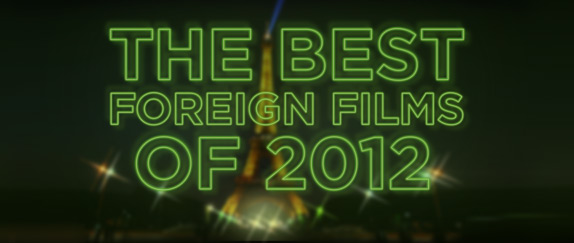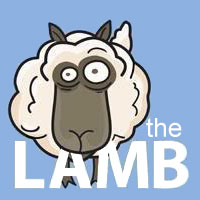Valley of the Bees • Údolí včel (1968)

Genre: Historical Drama
Director: František Vláčil
Starring: Petr Čepek, Jan Kačer, Zdeněk Kryzánek, Věra Galatíková, Miroslav Macháček, Josef Somr
Language: Czech
Duration: 97 min.
Summary:
The tale of a man forced to join the Order of the Teutonic Knights at a young age, and his later struggle with maintaining loyalty to the order versus his desire to live a free life.
Valley of the Bees is a film directed by František Vláčil, from a screenplay written by Vladimír Körner. It's the third of three historical films he made in the 1960s, following The Devil's Trap (1962), and Marketa Lazarová (1967).
Immediately following the filming of Marketa Lazarová, Vláčil returned to the thirteenth century with much of the same gritty realism and stunning widescreen black and white imagery we saw in that film, except this time the story is told with a more direct approach that puts it somewhere in between the highly experimental and free flowing nature of it and that of the more traditional The Devil's Trap, made six years previous.
The story follows Ondřej of Vlkov (Petr Čepek), a son of Czech nobility who was forced to join the Teutonic Order as a young boy, following a bad altercation with his father, which stemmed from a practical joke he played on his father's new young bride. There he is quickly befriended by fellow knight Armin (Jan Kačer), who takes Ondřej under his wing and the two develop a strong bond. However, as Ondřej gets older, the temptation of returning to his old life becomes overwhelming and he deserts the knighthood, prompting the devout Armin to follow in pursuit in an attempt to drag him back.
At its core is a complex exploration of the differences between the two men and their ways of life. One ridged and completely in service to his beliefs, the other freely embracing and expressing his humanity. Here more than ever, you get the feeling that the middle-ages setting, and even the Christianity versus Paganism themes, are simply stylistic devices for telling an universal tale. Life with arbitrary rules versus following one's will, and Vláčil makes use of many parallel scenes and repeated images in order to compare and contrast these conflicting approaches. This could be read as hidden political implications, and it's no surprise that the Soviet censors would ban screenings of the film soon after their August 1968 invasion.
There are also some controversial undertones to the various relationships. The unspoken but very evident repressed attraction between Ondřej and Armin, and also the quasi-oedipal romance between Ondřej and his stepmother Lenora (Věra Galatíková) who is practically of the same age.
Vláčil does a remarkable job of making the story clear as well as dramatically intense as opposed to the atmospheric and dreamlike narrative of Marketa Lazarová. Casting is spot on; Jan Kačer, with his leading man looks and charisma, is absolutely believable as the misguided fanatical golden crusader; while Petr Čepek, has the dark imperfections needed to be the rebellious black sheep. It's also very grisly, with moments of brutal violence that are unusually explicit for a Czech film, as well as having other disturbingly gory details revealed via dialog.
Once again, music is composed by the venerable Zdeněk Liška. A simple yet glorious soundtrack comprised of acapella church choirs, Gregorian chants, and minimal flute and horn driven pieces that accompany but never overpower the scenes. Sound is further enhanced by Vláčil's haunting use of environmental audio input including: swarms of buzzing bees, crashing waves, distorted off-screen voices, and the barking of hungry wild dogs.
It doesn't have the same fully immersive mental and emotional impact or atmosphere of his more well known and rightfully heralded masterpiece Marketa Lazarová, but it's equally well acted, directed, and has a far more accessible story which makes it perhaps a better starting point for anyone interested in exploring this Czech master. A director with a vision unlike any of his contemporary peers. His works are more in line with that of Bergman, Tarkovsky, or Bresson, and were it not for the severe post Soviet-invasion restrictions, he would likely be just as revered as they are today.
Immediately following the filming of Marketa Lazarová, Vláčil returned to the thirteenth century with much of the same gritty realism and stunning widescreen black and white imagery we saw in that film, except this time the story is told with a more direct approach that puts it somewhere in between the highly experimental and free flowing nature of it and that of the more traditional The Devil's Trap, made six years previous.
The story follows Ondřej of Vlkov (Petr Čepek), a son of Czech nobility who was forced to join the Teutonic Order as a young boy, following a bad altercation with his father, which stemmed from a practical joke he played on his father's new young bride. There he is quickly befriended by fellow knight Armin (Jan Kačer), who takes Ondřej under his wing and the two develop a strong bond. However, as Ondřej gets older, the temptation of returning to his old life becomes overwhelming and he deserts the knighthood, prompting the devout Armin to follow in pursuit in an attempt to drag him back.
At its core is a complex exploration of the differences between the two men and their ways of life. One ridged and completely in service to his beliefs, the other freely embracing and expressing his humanity. Here more than ever, you get the feeling that the middle-ages setting, and even the Christianity versus Paganism themes, are simply stylistic devices for telling an universal tale. Life with arbitrary rules versus following one's will, and Vláčil makes use of many parallel scenes and repeated images in order to compare and contrast these conflicting approaches. This could be read as hidden political implications, and it's no surprise that the Soviet censors would ban screenings of the film soon after their August 1968 invasion.
There are also some controversial undertones to the various relationships. The unspoken but very evident repressed attraction between Ondřej and Armin, and also the quasi-oedipal romance between Ondřej and his stepmother Lenora (Věra Galatíková) who is practically of the same age.
Vláčil does a remarkable job of making the story clear as well as dramatically intense as opposed to the atmospheric and dreamlike narrative of Marketa Lazarová. Casting is spot on; Jan Kačer, with his leading man looks and charisma, is absolutely believable as the misguided fanatical golden crusader; while Petr Čepek, has the dark imperfections needed to be the rebellious black sheep. It's also very grisly, with moments of brutal violence that are unusually explicit for a Czech film, as well as having other disturbingly gory details revealed via dialog.
Once again, music is composed by the venerable Zdeněk Liška. A simple yet glorious soundtrack comprised of acapella church choirs, Gregorian chants, and minimal flute and horn driven pieces that accompany but never overpower the scenes. Sound is further enhanced by Vláčil's haunting use of environmental audio input including: swarms of buzzing bees, crashing waves, distorted off-screen voices, and the barking of hungry wild dogs.
It doesn't have the same fully immersive mental and emotional impact or atmosphere of his more well known and rightfully heralded masterpiece Marketa Lazarová, but it's equally well acted, directed, and has a far more accessible story which makes it perhaps a better starting point for anyone interested in exploring this Czech master. A director with a vision unlike any of his contemporary peers. His works are more in line with that of Bergman, Tarkovsky, or Bresson, and were it not for the severe post Soviet-invasion restrictions, he would likely be just as revered as they are today.
— Bonjour Tristesse






























10 comments:
Thanks Bonjour for providing another brilliant review! I have added the movie to my bucket list... will get back to you as soon as I watch it :-)
Looks like a stuning film Nice catch!
I like the historical aspect of the movie....
Oooohhhhh.... great review! I have goosebumps! What a film! I loved this so much. The relationships are so understated and yet so pivotal to every action. In a film that never looks subtle, there is an incredible subterranean current. I agree with you (of course) that it isn't Marketa Lazarova - but that speaks to the greatness of ML rather than anything found wanting in this film. I remember being quite shocked by several scenes and themes here, and despite how much I loved to be shocked by a film that happens so rarely these days. Oh! Those beach scenes! Thanks for bringing such an important powerful film-maker to everyone's attention BT. How lucky we are to be able to see films like this.
It sounds like I could enjoy this one pretty easily. It goes on the list.. hopefully I'll remember it by name when I'm searching.
You are welcome, and as always I look forward to what you have to say about it.
It is. I can't understand why Vlácil isn't more widely respected.
I agree, it's a fascinating era for telling stories.
Yeah you are right, there's a little disappointment when you realize this is not going to be ML Redux, but when you look at it as a standalone film, it is still an excellent work with images that burn themselves into your mind. I actually had nightmares about bats and bees a couple nights ago, and that never happens.
If not, I'm always here to help remind you.
Post a Comment